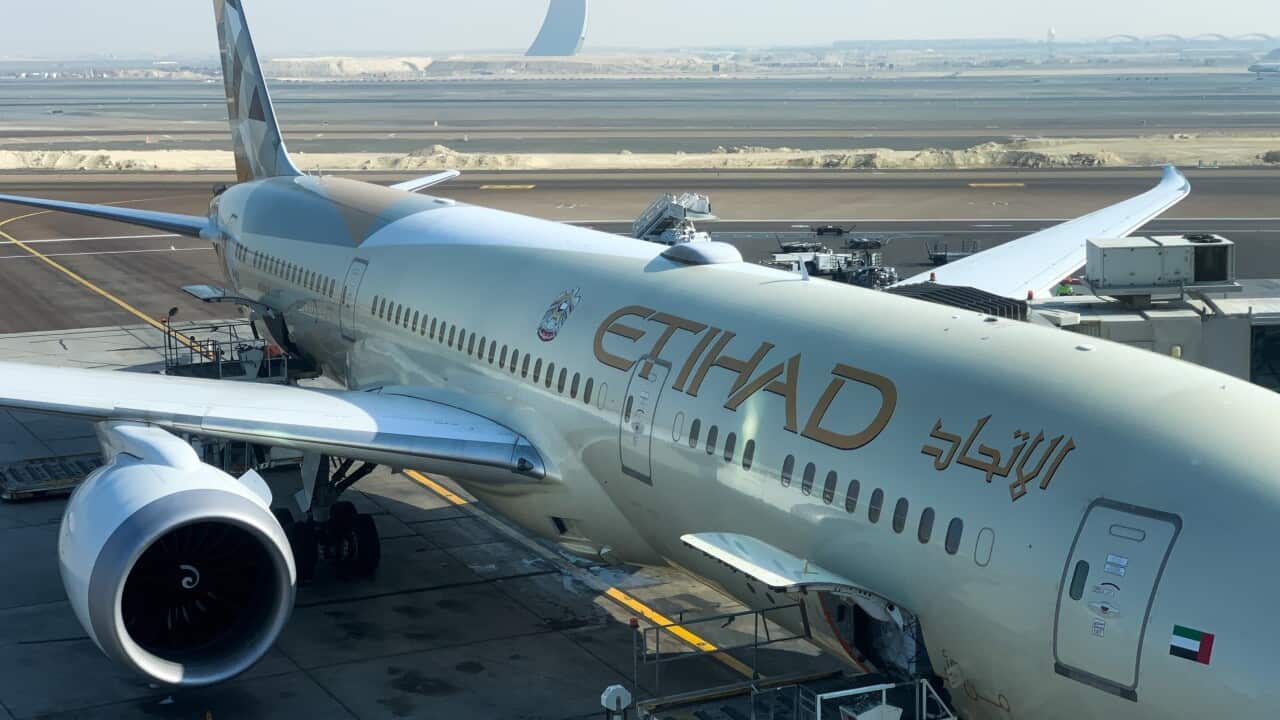Key Points
- Japan Airlines has launched a trial of a clothing-sharing service and encouraging travellers to fly without luggage.
- The airline says the service will cut down on plane weight and emissions, and support circular fashion.
- Aviation accounted for 2 per cent of global energy-related CO2 emissions in 2022.
Would you fly internationally without packing clothes to cut down on your carbon emissions?
And just how much could that really help the environment?
Japan Airlines (JAL) has launched a trial of a clothing-sharing service for tourists and business travellers to Japan. The airline says it will reduce carbon emissions and is part of a move towards sustainable tourism.
But an expert on climate change and sustainability has dismissed the move, saying it's a "silly strategy" that is not "seriously about saving climate emissions".
What is the clothing sharing service?
JAL says travellers can reserve clothing ahead of their trip, with the clothing to be hired for up to two weeks.
Outfits are then shipped to their hotel, where travellers return them at the end of their trip.

The Any Wear Anywhere service is being trialled by Japan Airlines (JAL ) and Sumitomo Corporation. Source: Supplied / Any Wear Anywhere
But does it really help the environment?
JAL says it will reduce fuel and emissions from planes by reducing the amount of cargo carried.
In promotional material for the campaign, it tells customers they can "reduce your carbon footprint easily".
For every 10kg of baggage reduced, the airline claims CO2 emissions can be reduced by 7.5kg. It said that was the equivalent of not using a hair dryer for 78 days.
JAL says it will monitor changes in passengers' checked-in baggage weight and verify the reduction of carbon dioxide emissions by reduced plane weight.
Expert says campaign is "not serious" on carbon reduction
Peter Newman, a professor of sustainability at Curtin University and a lead author for the Intergovernmental Panel on Climate Change on transport, dismissed the move.
"It's not seriously about saving climate emissions," he told SBS News in a statement.
"It may be about saving money but it's such a small thing it can't be part of a serious strategy for reducing weight in a plane."
Professor Newman pointed to moves by global finance firms increasingly demanding certified net-zero strategies before funding projects.
He said industries including mining were adopting renewable technologies, while aviation was lagging behind.
"We are way past this phase in land transport and cities where solar, batteries and EVs are dominating the market and genuinely are saving climate emissions," he said.
"Mining companies are doing serious things through these technologies as well. But aviation and shipping are the real laggards.
"They are going to have to get serious or else they will find themselves unable to get finance or in court with substantial fines. The world won't take such silly strategies for much longer."
How much does air travel damage the environment?
According to the International Energy Agency (IEA), aviation accounted for two per cent of global energy-related CO2 emissions in 2022.
It has grown faster in recent decades than rail, road or shipping, the IEA says.
After increasing at an average of 2.3 per cent per year from 1990 to 2019, direct CO2 emissions from fossil fuel combustion plummeted during the COVID-19 pandemic, but are expected to grow rapidly and surpass pre-pandemic levels around 2025.
In 2022, the International Civil Aviation Organization (ICAO) - a United Nations agency established to help countries share their skies - adopted a goal for international aviation of net-zero carbon emissions by 2050.




